How to get a blueberry bush to fruit – 3 expert tips for an abundant berry harvest
Try adjusting your blueberry bush's growing environment and watch as fruit starts to grow
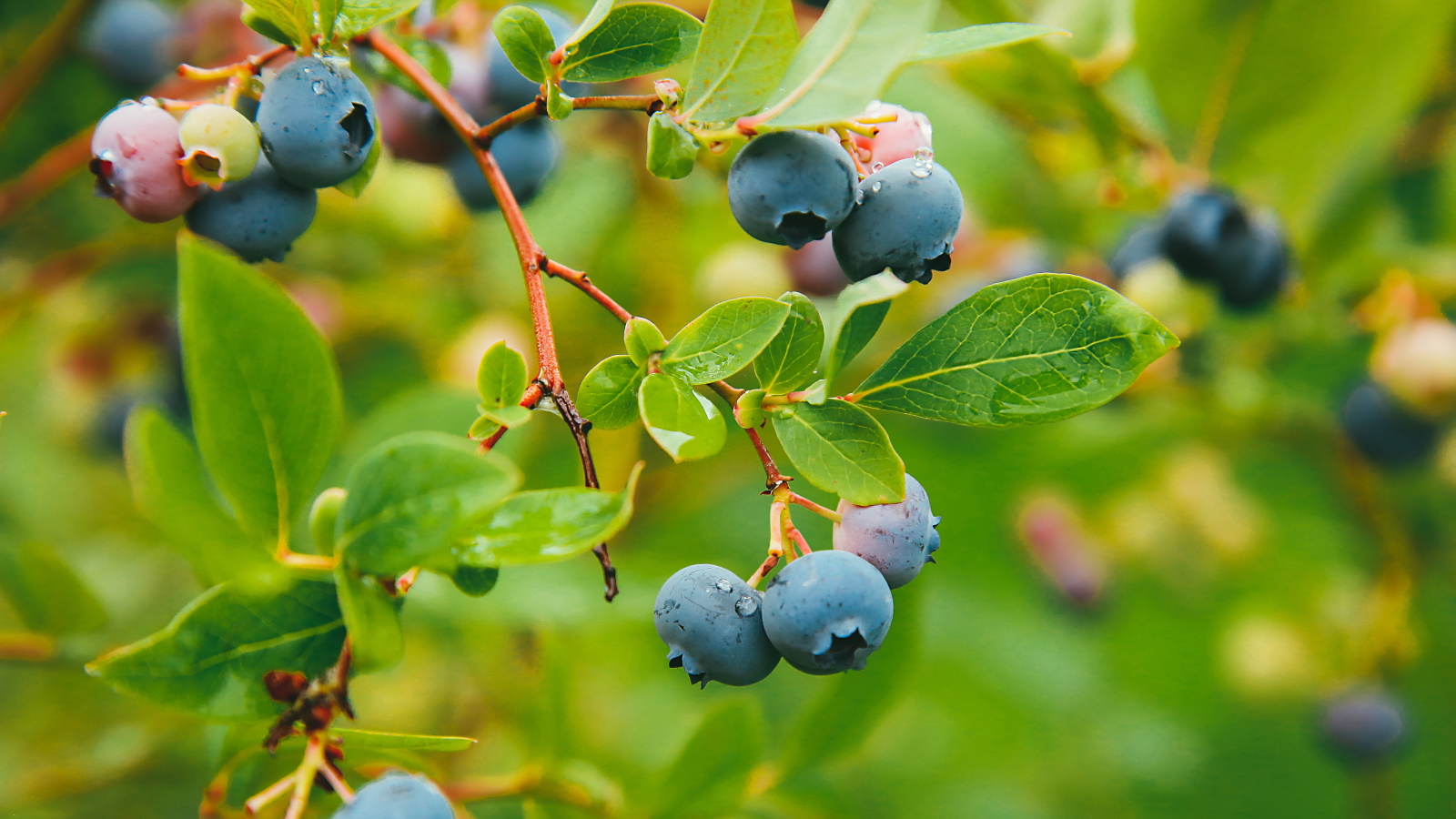

Growing your own fruit is both rewarding and challenging. Whether you get a successful harvest depends on things like pollination and your local climate. Growing blueberries is no different and getting a blueberry bush to fruit comes with its own hurdles.
Blueberries are native to North America and grow best in higher temperatures where they get plenty of sun. If you've tried to grow blueberries but aren't having much luck getting your blueberry bush to fruit, don't fret. It's a common problem many gardeners face and it just takes familiarizing yourself with optimal growing conditions to achieve an abundant harvest.
I've spoken to fruit growing experts to find out more about getting a blueberry bush to fruit and they've shared their top tips for planting a blueberry bush in the best place for fruit production.
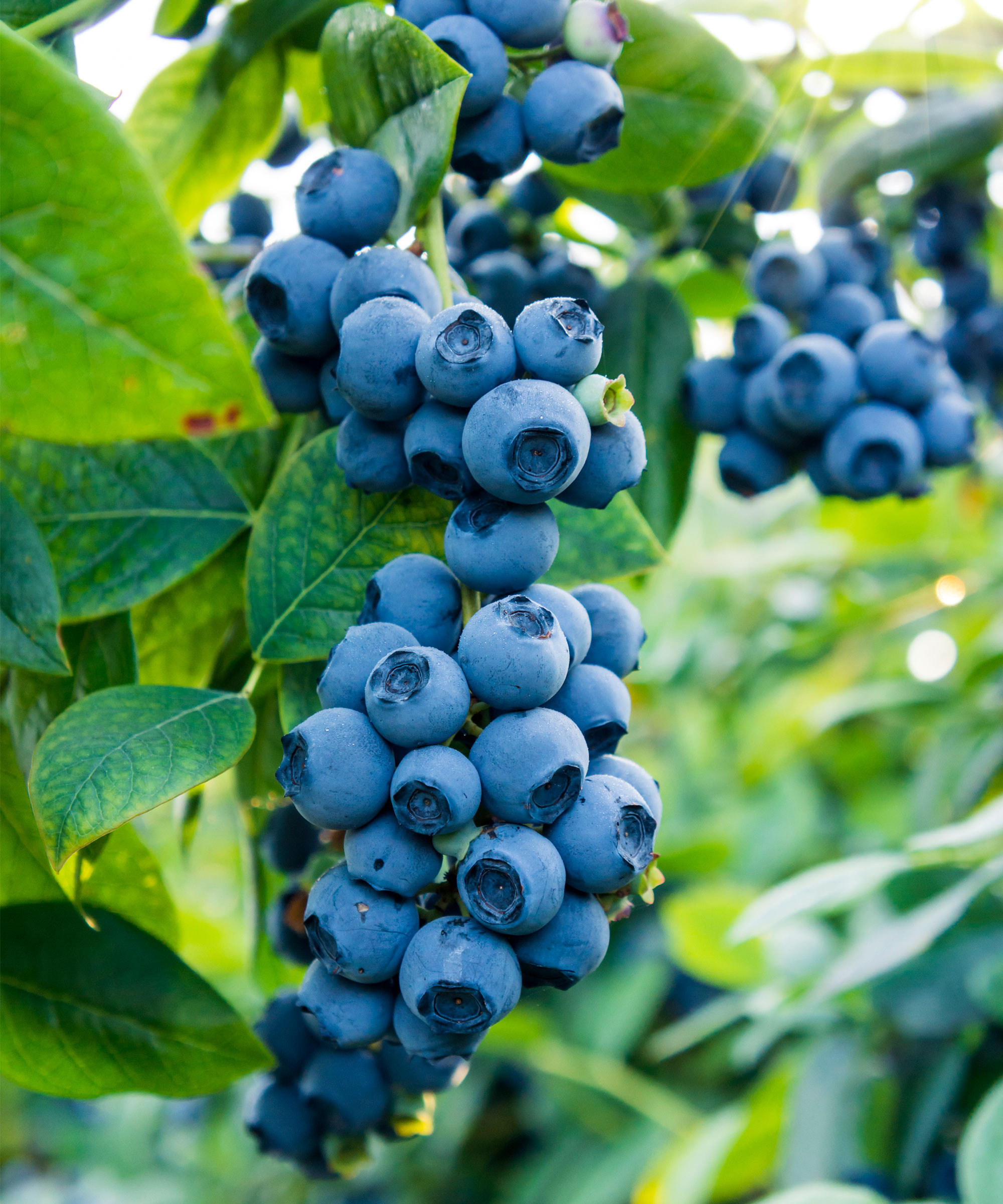
3 ways to get a blueberry bush to fruit
Blueberries grow on woody shrubs that can be anywhere from 20 inches to six and a half feet tall. They grow across US hardiness zone 3 to zone 8, producing beautiful white blooms in spring and sweet berries from mid-summer to early fall. However, these plants do need a few essential requirements to be met to produce fruit.
It's also important to note that a young blueberry plant is less likely to produce fruit, and you can only expect a blueberry harvest after the bush is a couple of years old and well-established. Here's what the experts say about getting a blueberry bush to fruit.
1. Choose pollinator-friendly companion plants
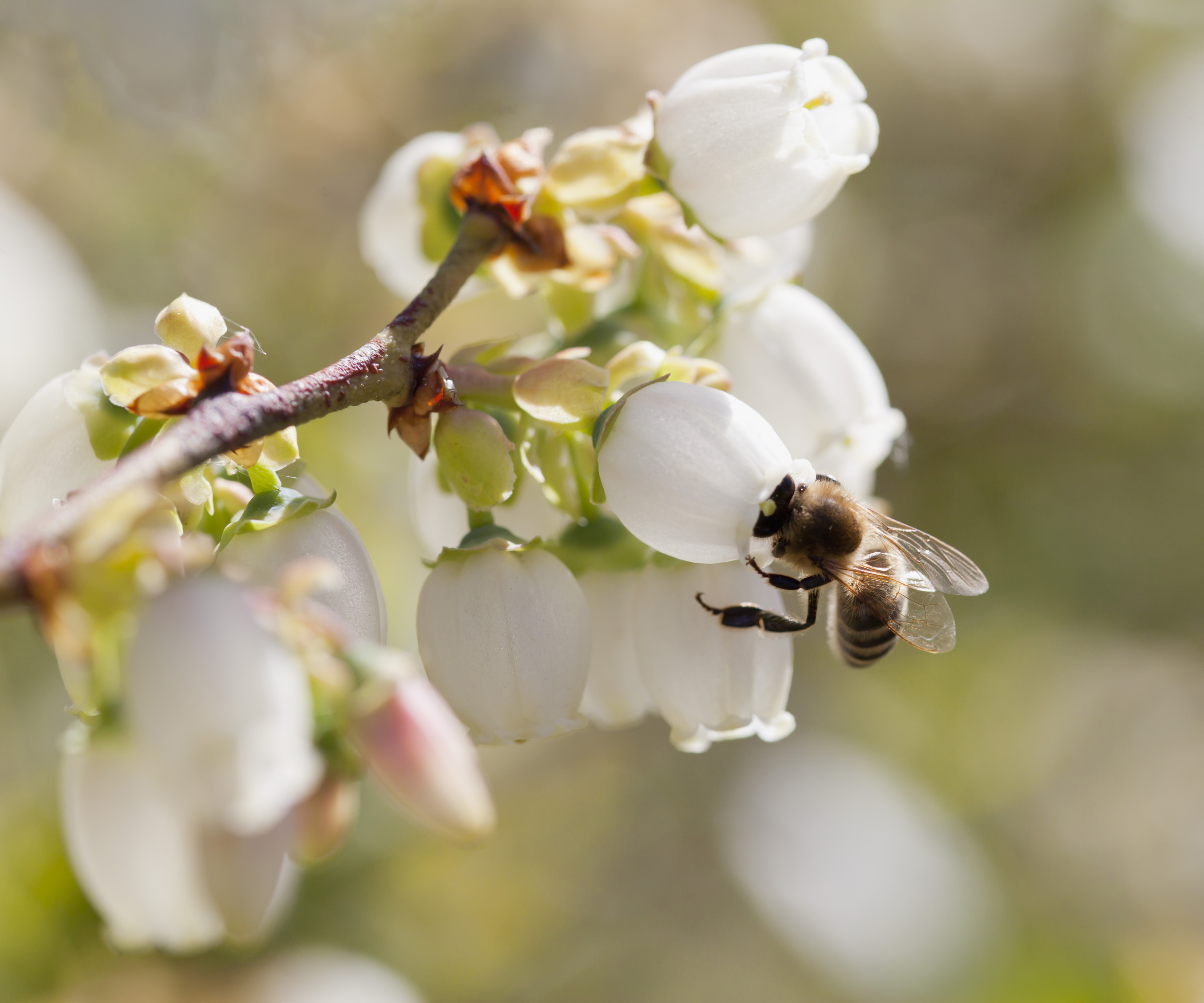
Like many other fruiting plants, blueberries need pollination for fruit production. This refers to pollinators, like bees, butterflies and birds, transferring pollen between plants.
'The most common reason blueberries don't fruit is lack of pollination,' says Lindsey Chastain, growing expert and founder of The Waddle and Cluck. 'Planting bee-friendly plants near your blueberry bush will help bring in pollinators,' she suggests.
As Lindsey mentions, a simple solution to getting a blueberry bush to fruit is to encourage pollination by attracting more bees to your garden, as well as other pollinators. By choosing among the best plants for pollinators for your blueberry bush companion planting, you can increase the chances of your blueberry bush being pollinated.
You can even try growing the best container plants for pollinators if you wish to move them around your yard and encourage pollinators to pollinate a range of crops you're growing.

Lindsey Chastain, a dedicated homesteader and skilled writer, is the driving force behind The Waddle and Cluck, a platform that celebrates sustainable living, gardening, and responsible farming. As half of the husband-wife team making The Waddle and Cluck thrive, Lindsey's expertise shines through in her engaging narratives about farm life and the beauty of rural living.

Grow this mix of 23 different flowers for pollinators to attract more bees, butterflies and birds to your yard. The mix includes foxgloves, cosmos, poppies and more.
2. Grow two varieties of blueberries
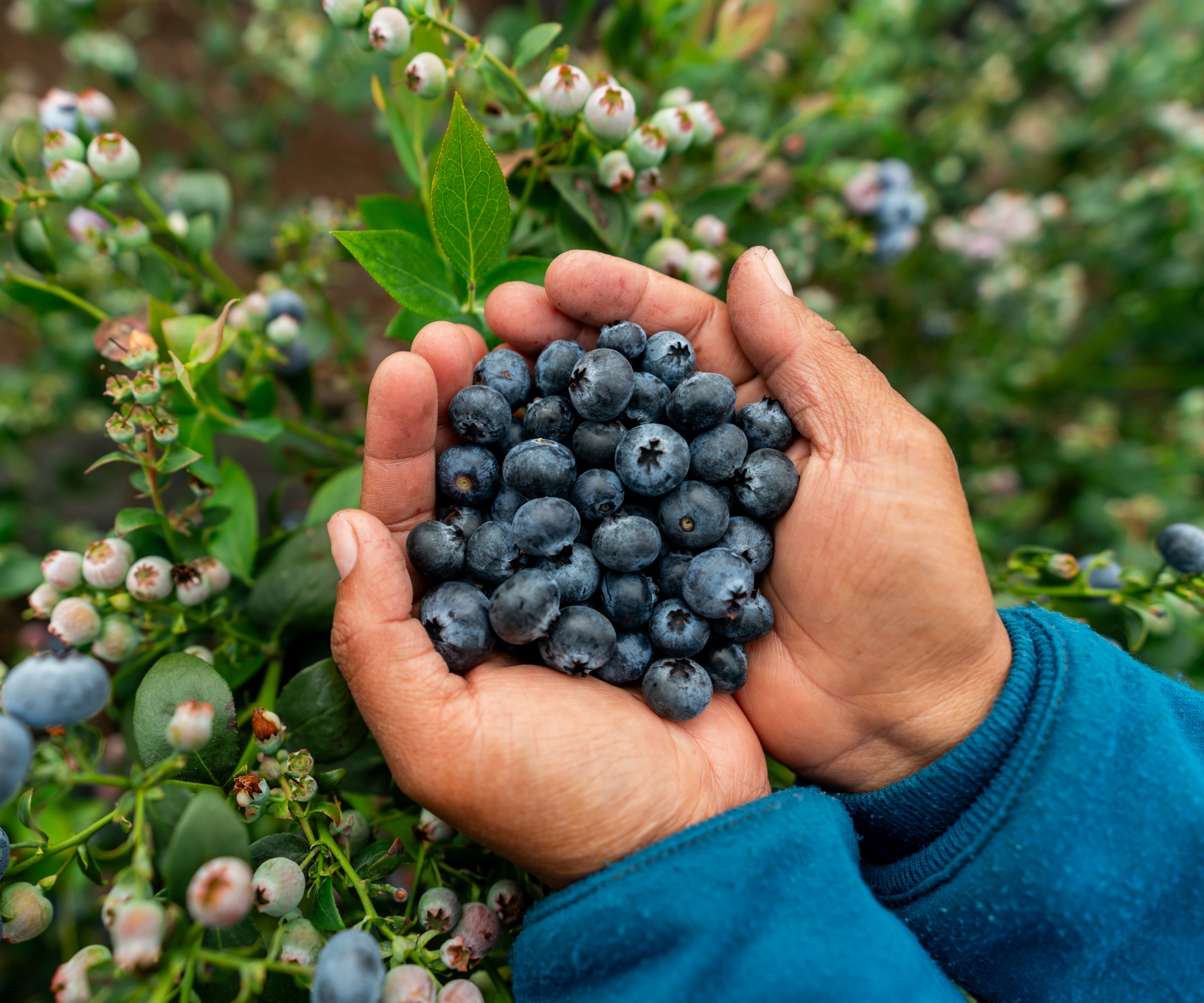
Another pollination tip is to widen the variety of blueberry bushes you grow. This can help with cross-pollination and kickstart fruit production.
'You'll harvest more berries if you have at least two blueberry bushes, each of a different variety. Even though blueberries are self-fertile to a certain extent, having two varieties that bloom at the same time, planted near each other, will increase your crop,' explains Kathi Rodgers, CEO of Oak Hill Homestead.
Having more than one variety will enable cross-pollination, which tends to produce larger yields. This is the case for many fruiting plants and is something to also take into consideration when planting fruit trees.
Luckily, there are a fair few blueberry varieties to choose from - like this Brunswick Blueberry Bush from Nature Hills and this Duke Blueberry Bush from Nature Hills.

Kathi Rodgers is the CEO and writer at Oak Hill Homestead and the voice behind HOMEGROWN: Your Backyard Garden Podcast. Founded in 2006, Oak Hill Homestead is where Kathi teaches new gardeners, goat owners and folks interested in living a more self-reliant life how to dig in and grow their dreams.
3. Opt for acidic soil for your blueberry bush
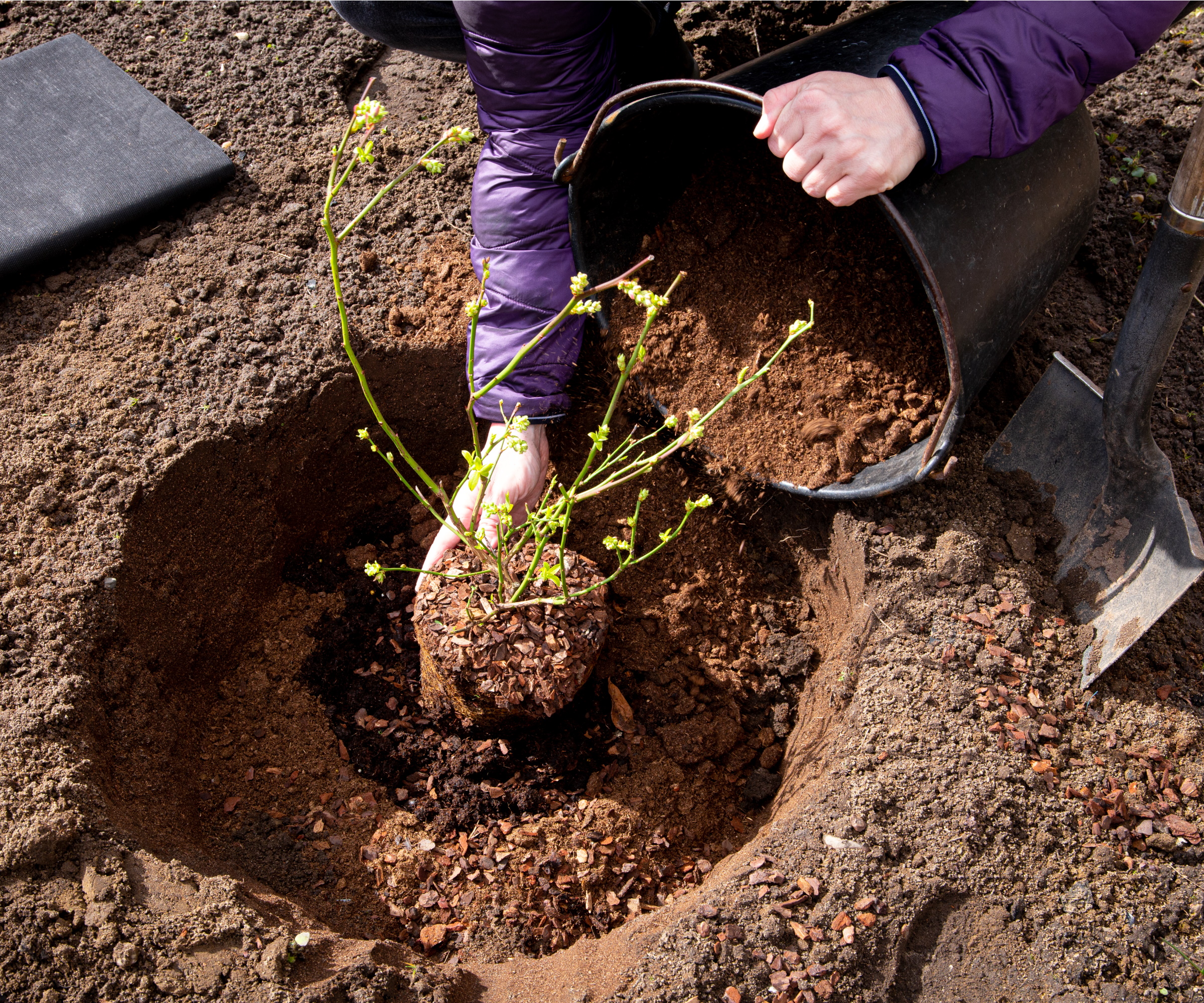
A likely cause of a lack of blueberry fruit is that it's growing in the wrong place. Not all soil types are right for all plants, and the pH level of soil can determine how well a plant thrives in a particular location.
'Blueberry bushes prefer acidic soil with a pH level of 4.0 to 5.5,' notes Kathi.
'The soil's pH can be lowered by adding peat moss, for instance. Help maintain this lower pH by watering blueberry bushes with a combination of water and coffee grounds,' she suggests.
As Kathi mentions, it is possible to make your soil more acidic by adding things like sphagnum peat moss and coffee grounds. That's why it's always important to test your soil before planting, to ensure it's the right type and has all the right nutrients for your plant.
If you're growing blueberries in pots, try using potting soil that is acidic or ericaceous - like this soil for acid-loving plants from Amazon.

This professional lab soil analysis measures 13 plant available nutrient levels including nitrogen and pH. You can test any soil type and gardening condition, from lawn and turf, to vegetables and flowers.
FAQs
Will fertilizer help my blueberry bush produce fruit?
It is recommended to fertilize blueberries to encourage healthy plant growth. Blueberry bushes require plenty of nutrients to grow, including nitrogen, so using a blueberry bush fertilizer - available at Amazon - is wise. Be aware that you should only fertilize a blueberry bush in early spring before the growing season. This will help the plant lock in nutrients for when new growth does begin. As a result, your blueberry bush will be strong and healthy, ready for successful fruit production.
While pollination and high levels of soil acidity are essential for blueberry production, there are other things you can do to keep your blueberry bush healthy and encourage it to grow fruit. This includes pruning blueberries to cut them back and encourage new growth. However, it's best to do some research on when to prune blueberries so that you don't hinder its growth.
Sign up to the Homes & Gardens newsletter
Design expertise in your inbox – from inspiring decorating ideas and beautiful celebrity homes to practical gardening advice and shopping round-ups.

Tenielle is a Gardens News Writer at Homes & Gardens. She holds a qualification in MA Magazine Journalism and has over six years of journalistic experience. Before coming to Homes & Gardens, Tenielle was in the editorial department at the Royal Horticultural Society and worked on The Garden magazine. As our in-house houseplant expert, Tenielle writes on a range of solutions to houseplant problems, as well as other 'how to' guides, inspiring garden projects, and the latest gardening news. When she isn't writing, Tenielle can be found propagating her ever-growing collection of indoor plants, helping others overcome common houseplant pests and diseases, volunteering at a local gardening club, and attending gardening workshops, like a composting masterclass.
-
 I've spent over 200 hours testing vacuums and swear by my two Dysons – this is how I properly clean a Dyson vacuum filter for longer-lasting appliances
I've spent over 200 hours testing vacuums and swear by my two Dysons – this is how I properly clean a Dyson vacuum filter for longer-lasting appliancesYour Dyson vacuum will last much longer and clean at its best
By Dan Fauzi Published
-
 Bethenny Frankel calls this $695 machine the 'Rolls-Royce Cullinan of coffee' – it's a must-have luxury buy for iced-coffee lovers this springtime
Bethenny Frankel calls this $695 machine the 'Rolls-Royce Cullinan of coffee' – it's a must-have luxury buy for iced-coffee lovers this springtimeThe Real Housewife swears by a luxurious machine that makes nitro cold brew, cold brew, and cold espresso at the touch of a button – here's why it's worth it
By Sophie Edwards Published